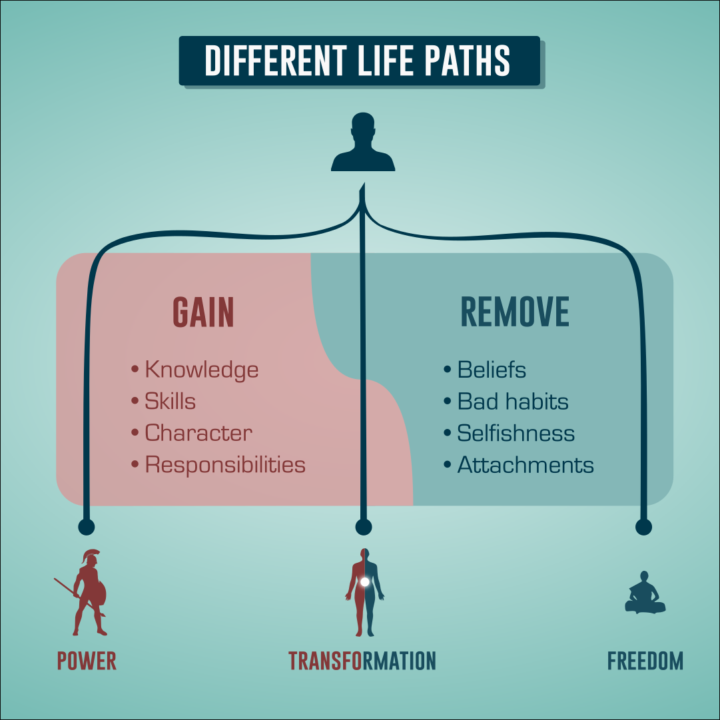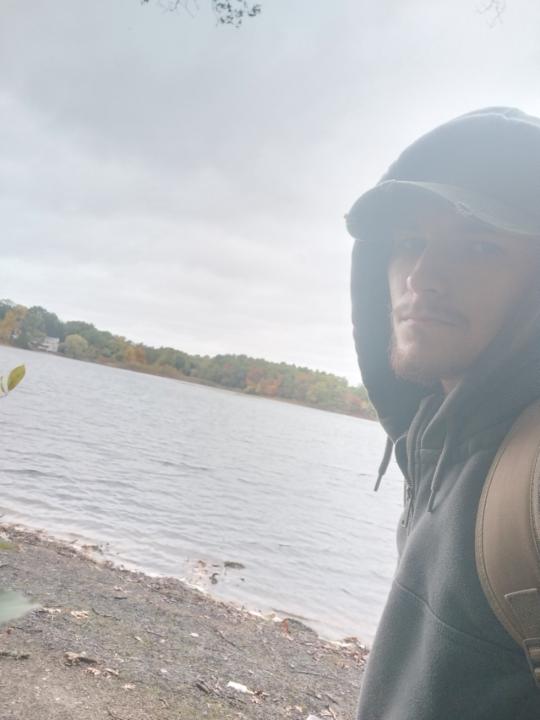Activity
Mon
Wed
Fri
Sun
Mar
Apr
May
Jun
Jul
Aug
Sep
Oct
Nov
Dec
Jan
Feb
What is this?
Less
More
Memberships
The Consciousness Path
523 members • Free
43 contributions to The Consciousness Path
Listening as a principle
I was looking at what true listening entails. It seems to me that the more I pay attention, the more evident it becomes that I'm not particularly good at it - not so much in the conventional sense, but in a deeper way. Imagine someone is communicating a profound insight to you - whether it relates to consciousness work, transformation, or something else entirely. What do you do with it? Do you immediately accept it, reject it, believe it, disbelieve it? Do you hear the words, filter them through your mind, recall past references to what's being said, and then conclude that the communication is now understood? Perhaps the first sign of poor listening is this very impulse or predisposition to claim that you've already understood the communication. This seems to be common. We don't realize that we may have failed to listen, that we haven't experienced the insight being shared (or at least not as profoundly as we could have). So how can we better "listen," especially in this context? What even is that about?
1 like • 10h
I don't know the whole truth about it, but I'd like to chime in, as I've been thinking about this recently actually. I almost feel like true listening is in a similar vein as truly "seeing" what's right in front of you. As in there's a quality that there's "not you" there. Whether you're trying to grasp what someone else says or really be clear and see what reality is more for itself rather than the other stuff. You've gotta "get out of your own head" in a way, which seems to be similar to what you're saying. I would hesitate to "exclude" conventional listening from this, since in real, deeper communication there is a particular kind of "opening up" that the mind does to pay attention and grasp someone else, I just think that for many people, it hasn't been a skill that's been trained up, and for some, maybe not even an idea in the first place. (We probably have a unique advantage here in this community to make such distinctions.) Anyway, as for "how" to listen, I think the main principle here, in a weird way of saying it, is "not you." THEM. And another trick is don't worry about "well, how do I do it?" No, just, them. Don't overthink it. Just watch them, listen, and pay attention. Honestly, the actual "act" of doing it really doesn't seem complex. Seems very simple and straightforward. Just pay attention and open up. Listen. Follow along. Overthinking it or being distracted really seem to be the biggest "obstacles." Buuuut, and in risk of rambling, but fuckit Imma do it anyway cuz this group is SUPPOSED to be a place to do that productively, the degree of general "openess" or "not knowing" we are able to "possess" can greatly affect the degree and depth we're able to e achieve "real listening." At least, in my world.
Simplicity
I'm having a dawning realization on just the nature of what I think is a lot of people's problems are and things that get in the way of learning as well. I'm noticing that a lot of crappy stuff that goes on that creates suffering in people's experiences and maybe inhibits people's abilities in learning stuff is just having a complex mind. As in there's just a bunch of shit being juggled around time to time. Like how you want to live your life you might have a million and one ideas of what it should be and this and that. Maybe making it hard to choose. Or if you wanted to learn something you might just start juggling around a lot of concepts trying to "figure it out." Been then there's just a simplicity in just paying attention to what's going on. Juggling around concepts and coming up with ideas seems to be the "thing to do" a lot of the time, but it kinda seems like the solution to a lot of our sufferings might honestly lean in the other direction. I think even in learning stuff too. Simplicity in living can look like an ease where you don't have to second guess yourself, and decisions can become clearer just by questioning or living. Simplicity in learning can look like the material ITSELF becomes the teacher, and your paying attention to the act or reality of it is what becomes the lesson. Less preconceptions I can even notice it in "combat," or even social interactions. Just move your body, mess around, do the thing. Stop "thinking" about it so much and actually participate. Funny how something so simple and in your face can be so powerful. Just doing the thing. Or when socializing, just get the dude across from you. Don't dramatize it or make crazy shit out of it. Just get him. Not even to mention how much more freeing of a life it can feel. Simple and direct. Reminds me of a quote somewhere that went something like "Zen is the de-symbolization of the world." Could just be a useful direction in general. Can feel a bit contemplative at times. Could be the direction in which contemplation "leans." Outside of all the "concepts," or "chatter." Just what is actually true
2 likes • 3d
@Corentin G You might be right. I can almost kind of notice that in this "act of being simple" it's not necessarily like denying anything, but more like accepting or being with what is without making a whole lot of extra fuss about it. So in the sense of this life being complex, it's almost like not adding unnecessary extra. A funny analogy, it kind of reminds me of staying calm or centered in a fighting. Because obviously fighting takes a load of skill and distinctions, but I'd think a good fighter can remain in this simple perceptive experience of the dynamics of the fight without getting in their head. Just calm participation
Mundane
Basically been grinding peters podcasts all over again and again, and everytime I ended up with this weird sense that i'm just not getting it, watched "how to stop self-destructive behaviour" one like 7 times already and It's just glimpses in my own experience of how much I actually grasp in there, but oh boy "why people hate being mundane" hit me like a truck. Basically what I did I've just noticed that there's such a thing in a first place, secondly that we run from it, and lastly we live our whole lives like this, funny that many people doesn't even consider about this, exactly like me, been doing this whole life. So i've sitted with it for more time and i've just started to connect the dots from all of the podcasts, like I could see that thoughts are distractions(self-made), all of the action we take is distractions, everything is a distraction when it comes to this, then i noticed emotions, i even laughed cause how can be emotion happening in nothingness without me doing it. Wanted to share this so much, cause it feels very profound when it comes to this work, now I can start integrating this into my daily life not just moments where nothing special is happening. anyone knows what i'm talking about? or i'm just fkin crazy, cause this one seems like root of everything, of every problem of every emotion you don't want, like just go and live from this state, in this state these thing has no possibility to happen cause they're just not there. And if you're further then this I would love to get some directions to look further, but for now i will keep looking at mundane until i get everything there is from it. Biggest question for me right now is why do we run from it in the first place and what is it even. Lets get back to work, also i'm grateful for answers and this community, peace✌️
1 like • 12d
I think you're definitely onto something Girius. I can't say I'm super far along when it comes to this question either, so I'm right beside you. I think having a solid hit on this definitely helps creates some powerful openess to start to question and maybe get it. But it does seem there really is something going on here. My best guess? So far I think it's something like our desire to be a "special" or "important" self or something. Our life has to have meaning or something. Like, maybe we've been instilled with these ideas, and want to prove our worth as a being or some such by finally "attaining" that ultimate goal, so all of our thoughts and attentions, and so emotions, kind of run this in the background as a sort of mode of operation or filter through which ideas and perceptions flow through, but which ultimately could be fruitless as a "cemented thought," as in it basically just causes harm, probably not much good. But this isn't direct insight. Just hypothesizing. In my experience, I find these desires, concepts, and want to be special, and am developing an ability to look AT IT rather than FROM IT a bit more, and question this whole shit. I don't know yet, but the possibility is there...
Why we feel stuck (even when we "do the work")
A very common way to approach life is to adopt a "more is better" attitude. When we are stuck, we look for more techniques, more routines, more methods… Basically, 𝗺𝗼𝗿𝗲 𝗶𝗻𝗳𝗼𝗿𝗺𝗮𝘁𝗶𝗼𝗻. But if we're honest: after years of reading and learning, is a lack of information still the problem? I'd argue that, usually, knowledge is not the actual limiting factor. The real issue is that we always had a 𝘀𝗵𝗮𝗸𝘆 𝗳𝗼𝘂𝗻𝗱𝗮𝘁𝗶𝗼𝗻 to begin with. Even if we received, say, the "Ultimate Textbook" on how to live life, the following things would still happen: - Not really knowing what we want - Setting goals but not acting on them - Being stopped by external conditions and turning them into excuses - Constantly "shooting ourselves in the foot" in small or big ways Even with the perfect plan, we'd still waste massive amounts of energy fighting our own internal contradictions. That’s a structural problem, and there’s no way to fix it with surface-level techniques found in self-help books. We need to go deeper: we need 𝗣𝗿𝗶𝗻𝗰𝗶𝗽𝗹𝗲𝘀. Next week (Saturday, Jan 31st), we’re running our 𝗻𝗲𝘄 6-hour interactive online workshop: The 4 Principles for a Free and Powerful Life. It’s about identifying the core mechanisms at the root of your everyday experience. When you align with these principles: - 𝗖𝗹𝗮𝗿𝗶𝘁𝘆 emerges: You know where you’re going - 𝗙𝗿𝗶𝗰𝘁𝗶𝗼𝗻 disappears: You stop fighting yourself - 𝗡𝗲𝘄 𝗽𝗼𝘀𝘀𝗶𝗯𝗶𝗹𝗶𝘁𝗶𝗲𝘀 open up: You realize you may not be as stuck as you thought - 𝗣𝗼𝘄𝗲𝗿 and 𝗙𝗿𝗲𝗲𝗱𝗼𝗺 return: You stop leaking energy on things that don’t matter Most productivity "hacks" stop working the moment we become internally stressed, or when too much external chaos appears. Conversely, principles are 𝘢𝘣𝘰𝘶𝘵 looking at what causes stress and chaos, and learning to navigate 𝘵𝘩𝘢𝘵. We're keeping this workshop affordable to make it a strong entry point for anyone new to this work. Even if you've worked with principles before, we'll approach them from a completely different angle, helping you integrate them in ways you likely haven't explored yet.

4 likes • 12d
I've found in my personal contemplations a dynamic sort of like "washing away" the unnecessary, or the "false," the "reality" of what you want to do becomes more clear. It's kind of like being really honest with yourself about that and being willing to admit what's really true for you about what you want to do or how you want to live. At least if you don't know what the answer is you open up the possibility to figure out what that is in a more honest way. So you could say honesty is like a principle at work here. Questioning to me kind of seems like that too. The more you remove bias and open up to what's really going on, you open up your mind to get something beyond its current "stuff." Something like that. This next online workshop seems pretty useful. I like how you guys are branching out and making the work more accessible for everyone in different kinds of scenarios. I know the in-person work is probably the best, but being able to come back to this as often as online affords can be pretty beneficial, I think
The "idea of Cheng Hsin" as an obstacle
All, I think I'm beginning to have a powerful realization on how people's preconceptions seriously hinder and get in the way of the work, as well as limit our ability to uncover the communications that facilitators, workshops, books, and other materials are trying to make. And it seems to be whatever "thing" we may "hold" "Cheng Hsin" as in our mind. Essentially, anything, and I mean anything, that takes our "perception" away from the "current state of affairs" and our ability to be present & listen to what is presenting itself as true Now! An example. Say someone in the Cheng Hsin martial arts instructs you, relax. You could have a whole thing where you extrapolate what that means in your mind, maybe you have it like it's this big "other" thing, or is something "spiritual," or maybe it means a lot or is "important," or the ability to do it is beyond you. But then in your experience you have an ability to just relax. And that could throw you off, going from one to the other, because it could look nothing like the concept you had of it. But unless you make the distinction, you don't really get to "begin" the work. You'd have had the concept pinned in your mind as the work, without even realizing you're engaging in something that's actually getting in your way! So then here we see why it's important to be honest with yourself. You'd likely never have made the distinction of real relaxing until you dropped the idea of it and found it in your experience. Also keep in mind I'm just using martial arts as an example here. The dynamic that I'm trying to show extends beyond that. Honesty, as an experience seems like it aligns our attention and mind to the most present reality we have in front of us. It's funny in a way because there's that "overlooked obvious" quality. So, it seems like the best way to "find" Cheng Hsin is to "throw it out!" (The concept) It's funny because I've heard that before but realize saying that is a mouthful! The material takes a much different form
2
0
1-10 of 43
@devin-henderson-1919
I love expressions of beautiful art, real skill, and increasing consciousness
Active 6h ago
Joined Jun 11, 2025
Powered by




